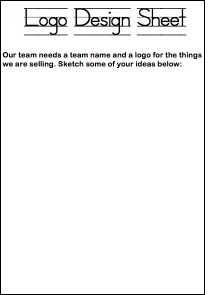 It never ceases to amaze me how important Role Play is in engaging pupils in understanding and performing tasks to the best of their ability. I remember quite early on in my teaching career when I was working with friends from Ultralab on an eTui research project. The afternoon involved my pupils playing with toys, a radio controlled car, a programmable toy and an eTui (a meta-level learning toy.) We asked my pupils to complete a questionnaire about what they understand about how each toy moved, what it sensed and how it responded to the environment in which it was being used.
It never ceases to amaze me how important Role Play is in engaging pupils in understanding and performing tasks to the best of their ability. I remember quite early on in my teaching career when I was working with friends from Ultralab on an eTui research project. The afternoon involved my pupils playing with toys, a radio controlled car, a programmable toy and an eTui (a meta-level learning toy.) We asked my pupils to complete a questionnaire about what they understand about how each toy moved, what it sensed and how it responded to the environment in which it was being used.
Crucially, we gave the pupils the title of 'researcher' and issued them each with a clipboard. Short of giving them a white 'lab' coat, they were every bit the researcher, and assumed that role throughout the afternoon. Interestingly enough, I remember questioning how most of the children understood the role of a researcher, yet their experience of what a researcher actually does was limited.
Recently, in discussion with colleagues during lunchtime, I reiterated how significant children in my Enterprise Team, had taken to the idea of being in-role as designers, inventors and business people. Here's why.
Over a period of 4 days next week, pupils at Kings Road Primary School are taking part in an Enterprise Week. The pupils have been tasked with designing and making products (or providing services) to sell with the intention of making a profit on the £50 they have received to buy resources. The ideas that each team are developing are already proving to be highly secretive and there is much competition between teams and keeping ideas top secret is the name of the game.

Whilst pupils in my team were in-role, I had them sign a child-friendly version of a NDA (Non-Disclosure Agreement) which gave them a sense of loyalty and assurance to each other that our ideas will not be shared with other children or teachers. Whilst other pupils have since shared confidential information, my team haven't. How significant was role-playing in ensuring that our ideas weren't readily shared with others?
Today, we finalised our plans, discussed and voted on our team name, 'The F Factor' and began work on designing a logo for the team. Again, I used role-play with the help of preprinted stationery to ensure pupils engaged with the idea of being a creative designer for our team. The logos they presented were of a high standard and their understanding of the task was obvious in the designs they had produced.
Role-play had an enormous significance in the primary classroom and is not just the domain of Key Stage 1 pupils, but can, and should be given opportunities throughout all year groups in the school.